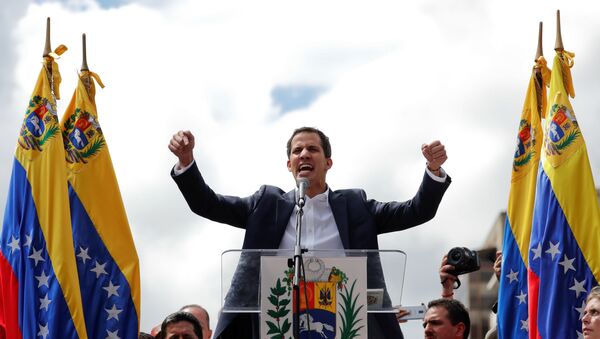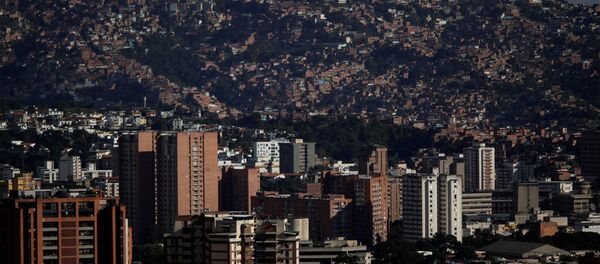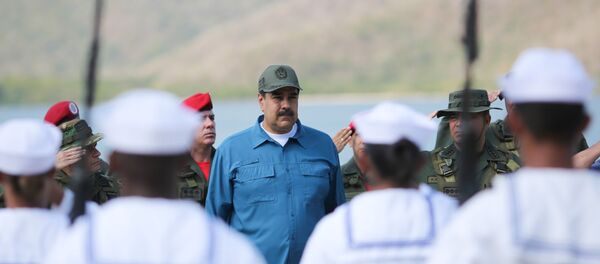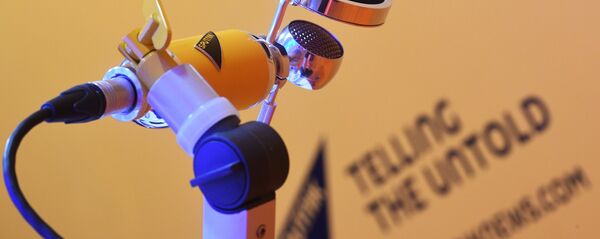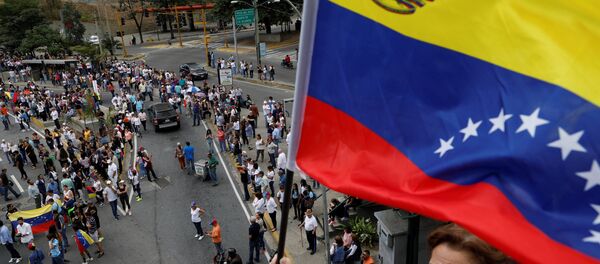Venezuelan President Nicolas Maduro has mulled the question of calling snap parliamentary elections, but rejected calls from the European Union and other countries to hold presidential elections. Meanwhile, the US-aligned Lima Group is planning its next steps in Venezuela at a conference in Ottawa, Canada, including positioning its members as suppliers of humanitarian aid to alleviate the damage done to the Venezuelan economy by their own economic sanctions.
Radio Sputnik's Fault Lines spoke with Pearse Redmond, an activist, radio host and podcaster at Porkins Policy Review, about the situation on the streets in Venezuela and whether or not Guaido, endorsed by foreign governments, actually has the pull within the country itself to take and retain power from Maduro and his United Socialist Party of Venezuela.
[Interview begins at 150:30]
"The media coverage is so skewed here — we don't see the large-scale protests in Caracas or Merida or any of the other large cities, and even small towns as well, in Venezuela," Redmond said. "We're not seeing that, of course. We're seeing a lot of recycled images as well, on Western media, of old protests that they're linking to the so-called Interim President Juan Guaido."
"The other thing that I've been focusing on is the mere fact that this is so fabricated, this is so orchestrated, obviously, by the West, mainly the US and Canada but also a lot of the countries in the Lima Group — Brazil, Colombia, Peru, Argentina, there's a whole host of them, mostly right-wing bordering on sort of outright fascist countries in Latin America."
"But how manipulated and fabricated this whole thing is: there is no support, really, for Guaido. I'm not denying that there aren't people opposed to Maduro and his government; I think that they do obviously exist, but you know Guaido is such a marginalized figure," Redmond told hosts Garland Nixon and Lee Stranahan. "There was a poll done not that long ago, after he declared himself, before god and all of Venezuela, that he was the legitimate leader, that like 80 percent of the population has no idea who he is."
Redmond noted that Guaido "has no real electoral history — obviously he didn't run for president," and that this helped explain why Guaido was so nervous about European Union calls for an election. However, Guaido also opposes Maduro's calls for early parliamentary elections because "this questions his legitimacy as the so-called president of Venezuela, but more so, he has no base. I don't know that he can really rile up enough people. Outside of a mainly light-skinned European business elite, there is no support for Guaido on a large scale."
Noting that the US strategy for forcing regime change has changed over the years from the model seen in Grenada or Iraq, Redmond drew comparisons to Ukraine, Libya and the 2011 Arab Spring, all of which "seemed to entirely consist of civil society groups, NGOs, that all had funding from the National Endowment for Democracy [NED], which is just a CIA front, and Guaido is no exception. He was trained by one of the more famous ‘color revolution' groups, CANVAS," or the Centre for Applied Nonviolent Action and Strategies.
In a Gray Zone Project article published last week, journalists Max Blumenthal and Dan Cohen note that CANVAS received major funding from the NED in the 1990s and was instrumental in the overthrow of Serbian President Slobodan Milosevic in October 2000.
Guaido "spent much of his time, not in Venezuela, advocating for the poor or even for the business class, but he spent a lot of time traveling around to Mexico and other places to receive training from CANVAS."
Guaido did, however, take part in the 2014 guarimbas, anti-Maduro riots that killed dozens and were given the name of the barricades that students built in cities across the country, Gray Zone noted. The riots were portrayed by international media as spontaneous, but were reportedly organized by opposition party Popular Will — Guaido's party, founded by Leopoldo Lopez, another NED graduate and Venezuelan aristocrat, in 2009.
However, Redmond told Sputnik he thought the US had "overplayed their hand" in Venezuela. "I don't think there is the space and even the sort of organization that you would really need to… push a color revolution."
"I'm not fully convinced that even the right-wing opposition — you know, the people in power, [Julio] Borges, who I believe is still in Colombia in exile, some of the other opposition leaders — I'm not even sure they're convinced that Guaido is their guy, that's he going to bring them back into power, or something like that. That's what I've found interesting about this — you know, John Bolton, for all of his supposed skills, geopolitically… has really screwed up with this," Redmond said about the US national security adviser's regime change model. He noted Bolton's failure to stir up considerable dissent in Iran by sponsoring the MEK and the "bogus" Iranian plot to blow up Bolton and Rudy Giuliani in Paris. "Even with that in the news, they couldn't get it to come to pass," Redmond said.
"So in Venezuela, I think again they've completely overplayed their hand. I think it's really about sowing chaos, pushing them more and more to the brink of collapse," and violence, Redmond said, noting that he thought the US intervention in Venezuela was more an attempt to get at Cuba and Nicaragua than at Maduro himself.
